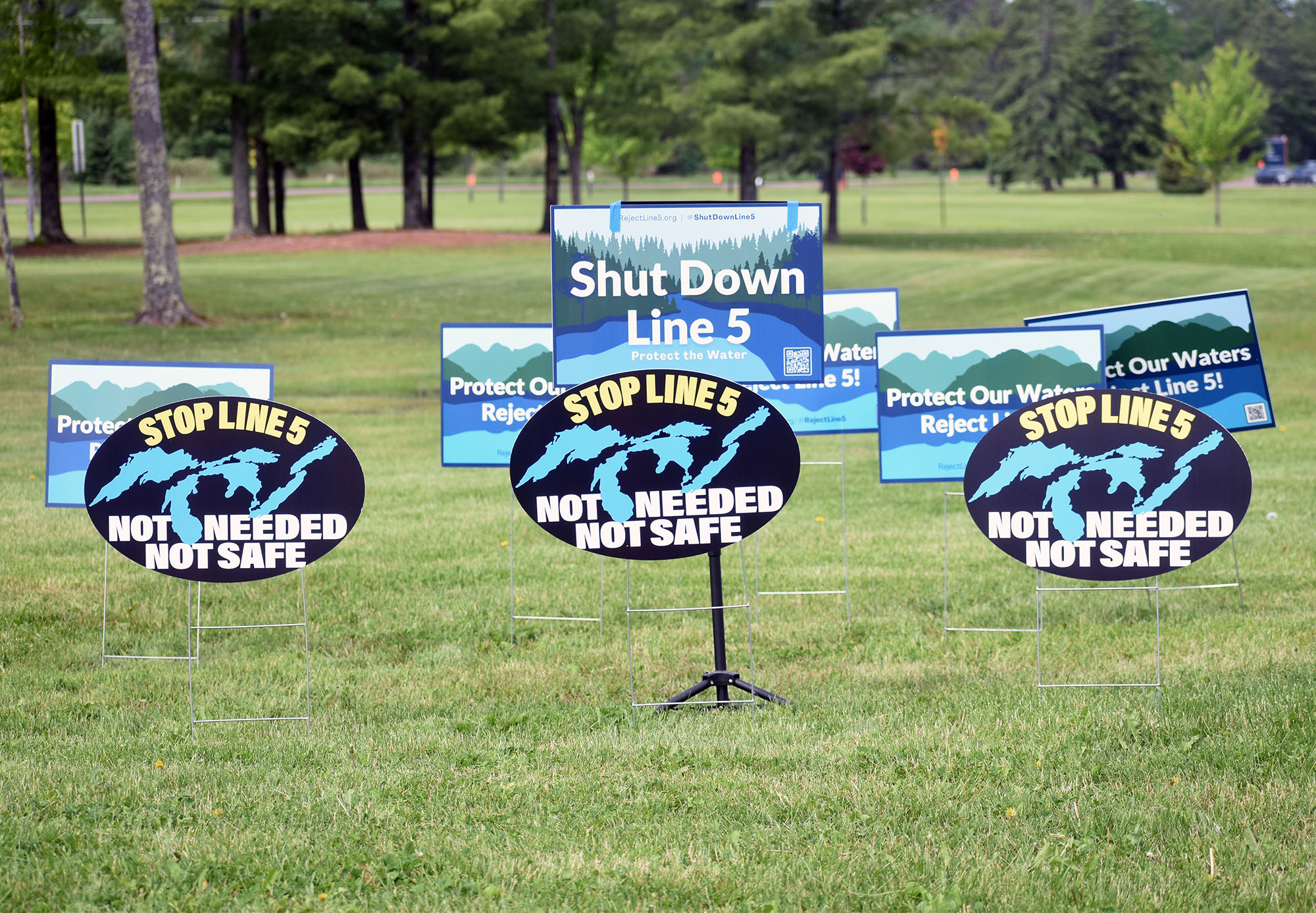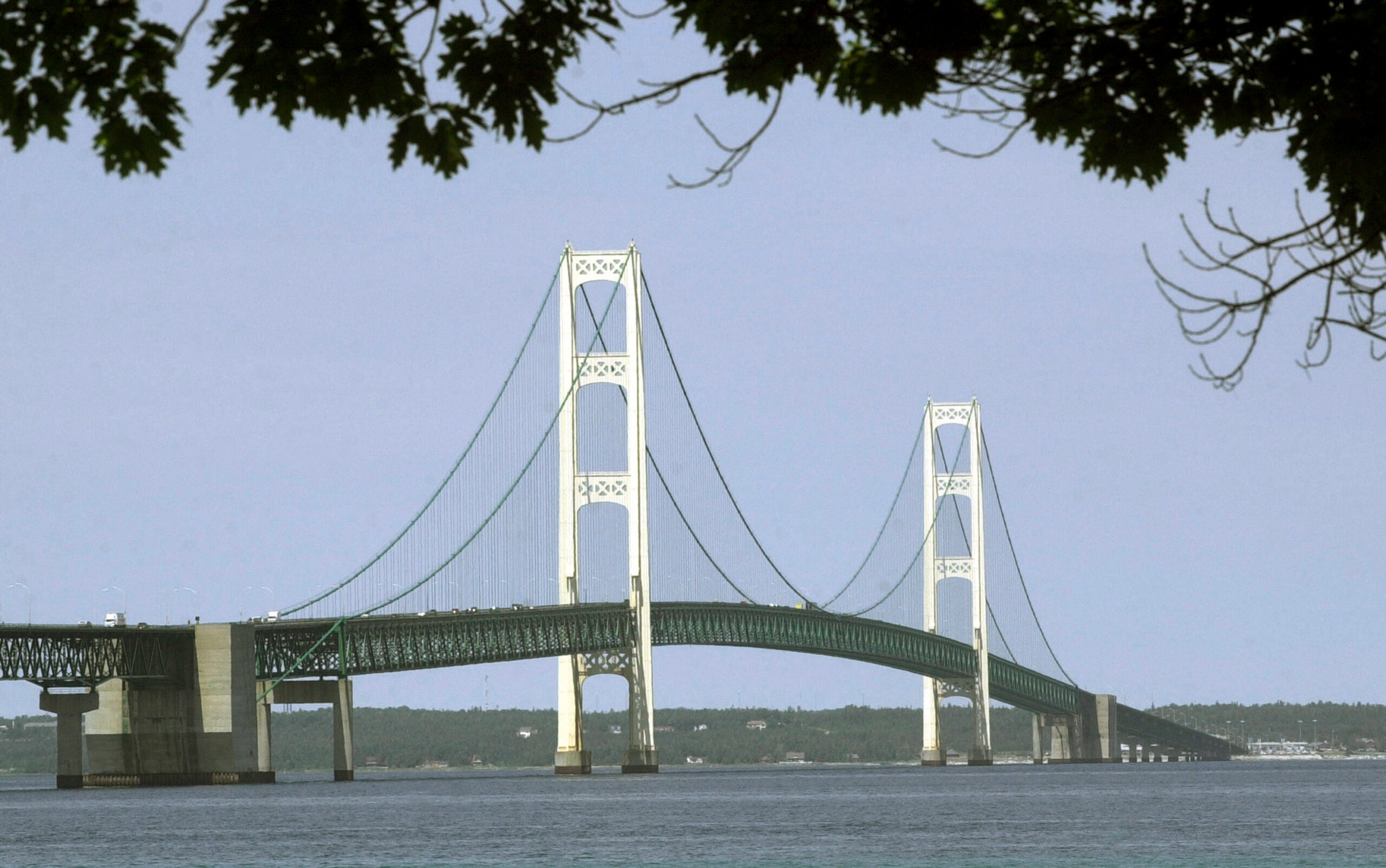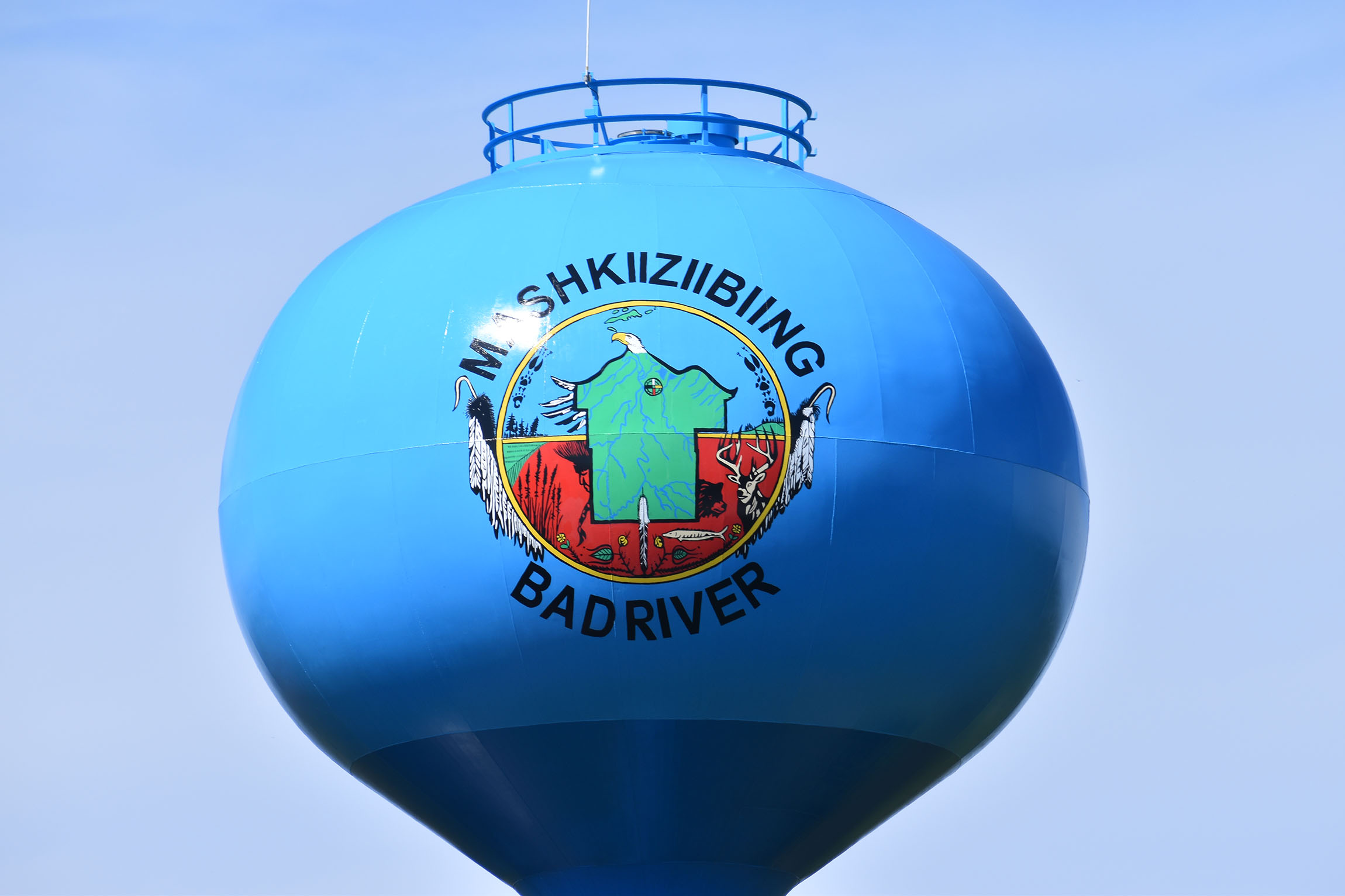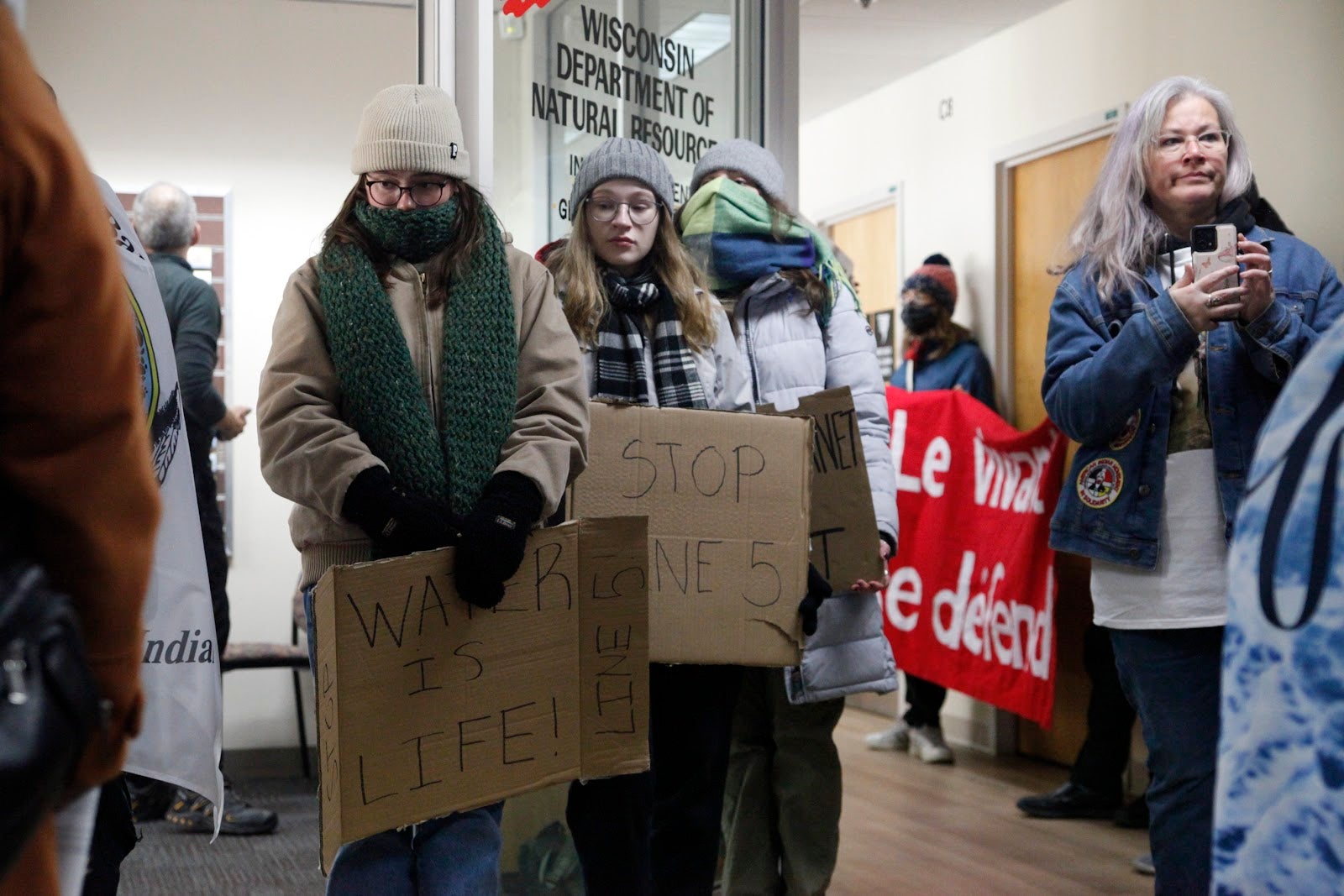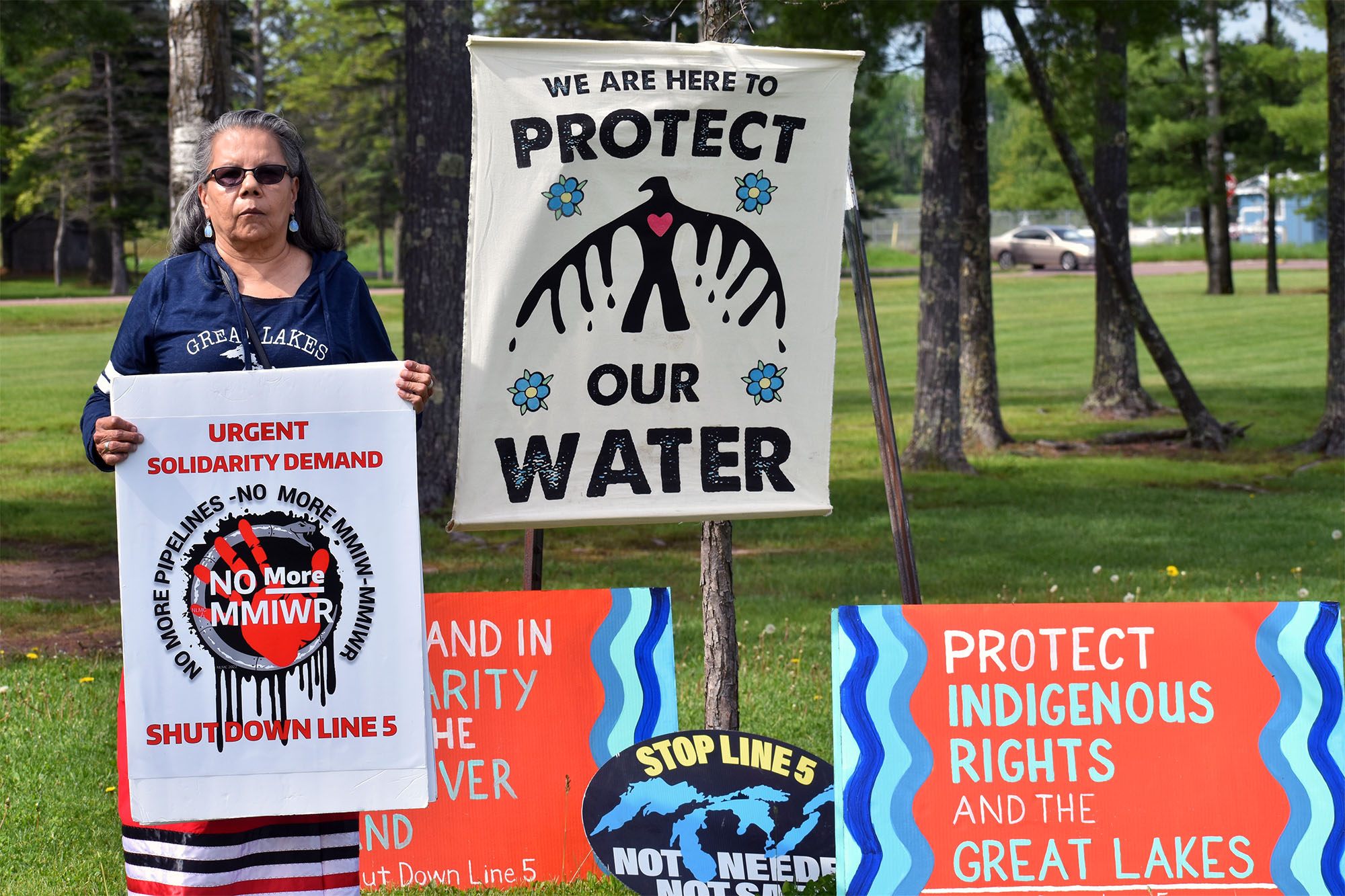The Bad River tribe and environmental groups are challenging state permits issued to Canadian energy firm Enbridge for the company’s plan to reroute an oil and gas pipeline around the tribe’s reservation.
In November, the Wisconsin Department of Natural Resources issued a wetland and waterway permit for Enbridge’s planned 41-mile reroute of Line 5. Regulators also issued a general wastewater discharge permit for stormwater runoff tied to building the new stretch of 30-inch pipe.
The project to reroute Line 5 would cross 186 waterways and temporarily disturb around 101 acres of wetlands in Ashland and Iron counties.
Earthjustice filed a petition for a contested case hearing Thursday on behalf of the Bad River tribe in addition to a lawsuit in Ashland County. The tribe argues the state’s waterway and wetland permit, water quality certification and final environmental impact statement fail to comply with Wisconsin’s environmental laws.
During a virtual press conference Thursday afternoon, Bad River Tribal Chair Robert Blanchard said the pipeline threatens the tribe’s way of life.
“We do have annual harvest of our wild rice, which grows along the rivers here in Bad River and Lake Superior. We hunt, we fish and we gather a lot of our medicines that we use to heal ourselves here,” Blanchard said. “If something happens to that, our people are going to feel that. We have a lot at stake here.”
Stay informed on the latest news
Sign up for WPR’s email newsletter.
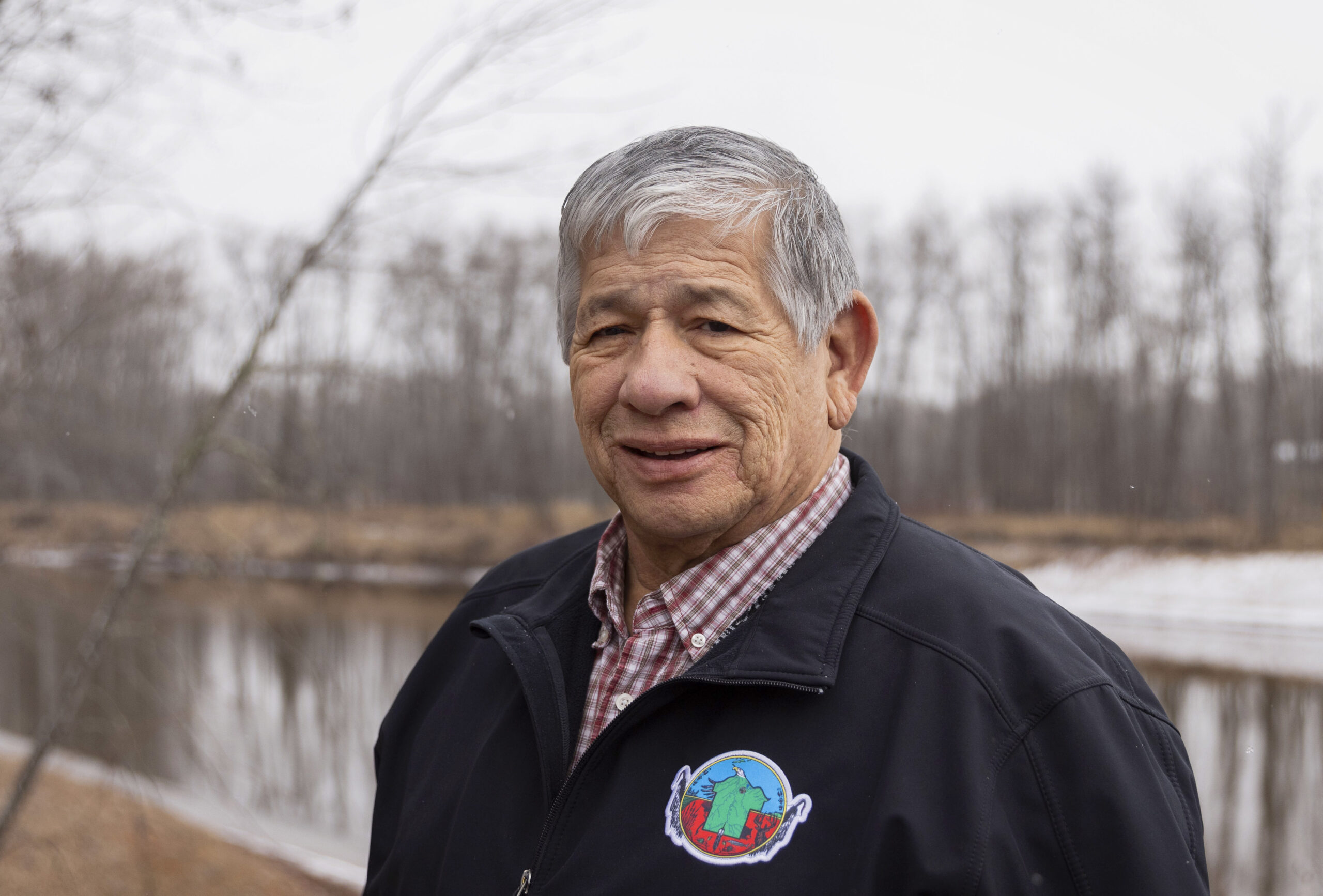
Midwest Environmental Advocates, or MEA, and Clean Wisconsin jointly filed a separate petition for a contested case hearing Thursday.
In both petitions, the tribe and environmental groups challenge the DNR’s decision to approve the wetland and waterway permit, as well as a general permit to manage stormwater runoff. The tribe and groups add the project fails to meet the state’s water quality standards and requirements under the Wisconsin Environmental Policy Act.
Tony Wilkin Gibart, MEA’s executive director, said Enbridge failed to show the project would minimize harm to waterways and wetlands.
“The burden here is on Enbridge to show that it can cross the close to 200 water bodies while protecting the environment of Wisconsin, protecting the precious water resources of the state. In this case, Enbridge simply hasn’t done that,” Wilkin Gibart told WPR. “Because Enbridge has not made that showing, the DNR could not have lawfully issued these permits, and its decision to do so must be reversed.”
MEA is challenging the permit on behalf of the Sierra Club, 350 Wisconsin and the League of Women Voters of Wisconsin.
Tribe and groups say state lacked enough information to issue permits
The Bad River tribe raised 13 issues with the state’s decision, and environmental groups raised 16 objections in their petition.
The objections refer to a lack of information on the specific rivers and streams that would be blasted to install the pipeline. MEA and Clean Wisconsin argue the company’s construction and restoration plans understate damage to the environment and overstate Enbridge’s ability to restore areas. The tribe and environmental groups also argue the company lacks the ownership required to be able to place temporary or permanent structures on the beds of waterways.
The tribe and environmental groups are asking an administrative law judge to hold off on any construction pending further review. Ultimately, they want the state’s decision on the permits reversed.
DNR staff have previously said they’re confident the agency’s process complied with state law, noting the permits contained more than 200 conditions. A DNR spokesperson said the agency is unable to comment at this time.
Enbridge spokesperson Juli Kellner said in a statement that the challenges unnecessarily delay a major economic boost for northern Wisconsin communities.
“Nearly five years of public input, expert study and rigorous review resulted in thorough and comprehensive permits from the Wisconsin Department of Natural Resources (DNR) for the Line 5 Segment Relocation Project,” Kellner wrote. “The project will build a new segment of pipeline around the Bad River Reservation, generate millions of dollars in construction spending for local communities, create over 700 family supporting union jobs, and preserve the flow of essential energy that millions of consumers in the region rely on every day.”

Enbridge proposed relocating Line 5 after the Bad River tribe sued the company in 2019 to shut down and remove the pipeline from tribal lands. The 71-year-old Line 5 runs 645 miles from Superior to Ontario, and it carries up to 23 million gallons of oil and natural gas liquids per day.
Enbridge maintains a shutdown would make it more expensive to move products by truck or rail. An Enbridge expert previously estimated shutting down the pipeline would increase gas, diesel and jet fuel costs in Wisconsin and Michigan by an additional $20 million and $30 million in costs each year respectively.
The company still needs to obtain other state and federal permits before work can begin, including from the U.S. Army Corps of Engineers. The federal agency has said it plans to make a decision on the company’s permit application next year. In August, more than 150,000 people submitted comments to the Army Corps in opposition to the project compared to more than 14,000 people who signed a petition in favor of the Line 5 reroute.
Legal battle ongoing between Bad River and Enbridge over Line 5
Enbridge and the Bad River tribe have been at odds for more than a decade after the company’s easements expired on a dozen tracts of land in 2013.
Last year, U.S. District Judge William Conley ordered the company to pay $5.15 million for trespassing on the Bad River tribe’s lands where its pipeline easements expired. He also ordered the company to shut down or reroute Line 5 where it’s illegally operating by June 2026. Both the tribe and Enbridge are appealing that decision in the Seventh Circuit Court of Appeals, and a ruling is still pending.
The Biden administration has urged the appeals court to reconsider the ruling to adequately compensate the tribe and reexamine the decision’s effects on tribal treaty rights, as well as foreign relations with Canada. The Canadian government has invoked a 1977 treaty that ensures the transport of oil between the U.S. and Canada.
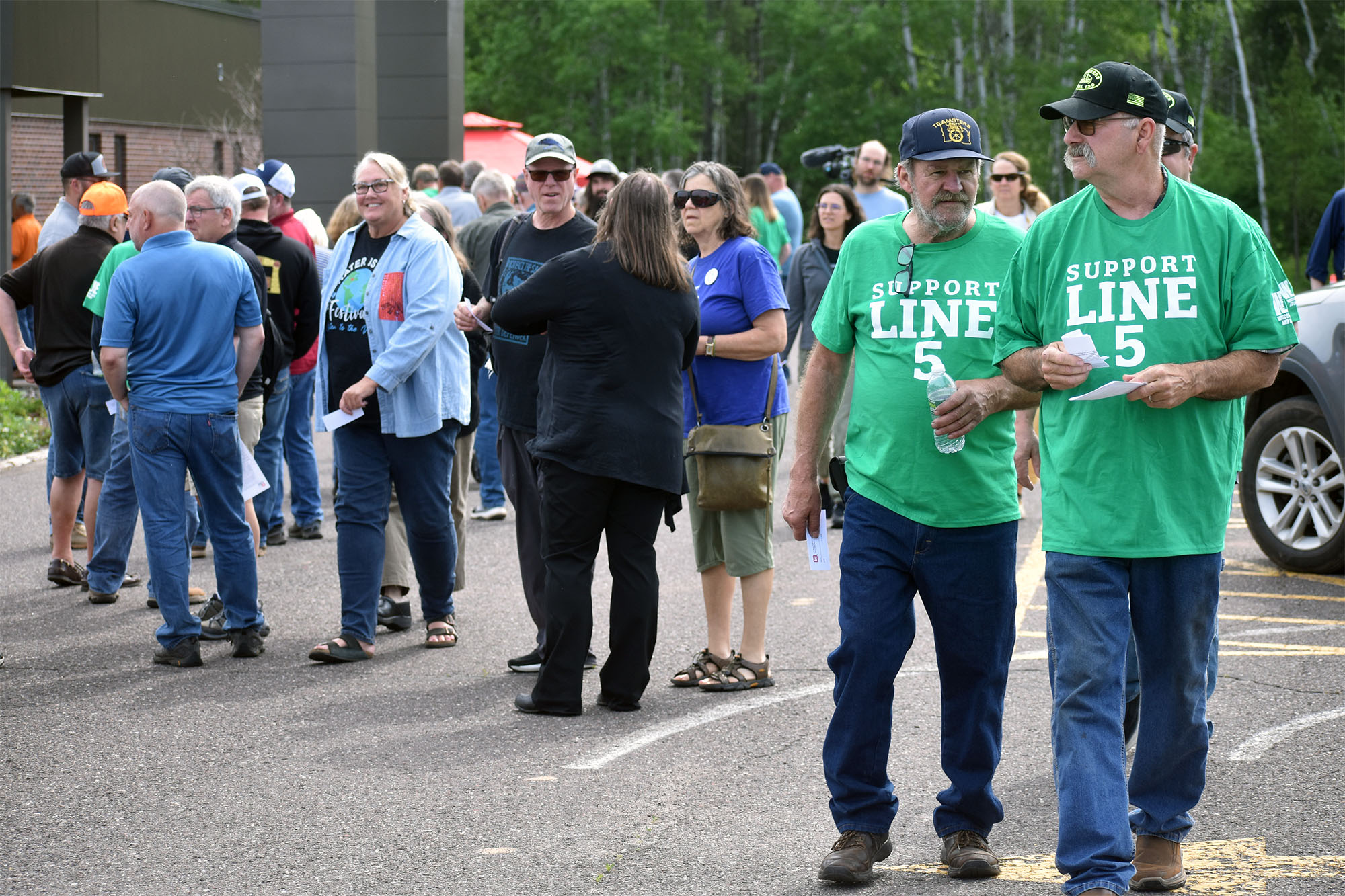
Supporters have touted the 700 jobs that would be created through the project and roughly $135 million economic impact. Enbridge maintains that Line 5 has operated safely since 1953, saying it’s invested billions to improve inspection and operation of its pipelines.
Opponents have underscored that Line 5 has had around 30 releases on land, spilling about 1 million gallons of oil. Enbridge is also responsible for a 2010 spill that released more than 1.2 million gallons of oil into the Kalamazoo River in Michigan, as well as four aquifer breaches on the Line 3 replacement in Minnesota that released hundreds of millions of gallons of groundwater.
The pipeline is also at the center of a legal battle in Michigan. In 2019, the state’s Democratic attorney general, Dana Nessel, sued to shut down Line 5, which runs under the Straits of Mackinac that connects Lakes Michigan and Huron. That case is still ongoing and has been sent back to state court.
Under the permits, Enbridge must complete the project within three years or request an extension.
Wisconsin Public Radio, © Copyright 2025, Board of Regents of the University of Wisconsin System and Wisconsin Educational Communications Board.
